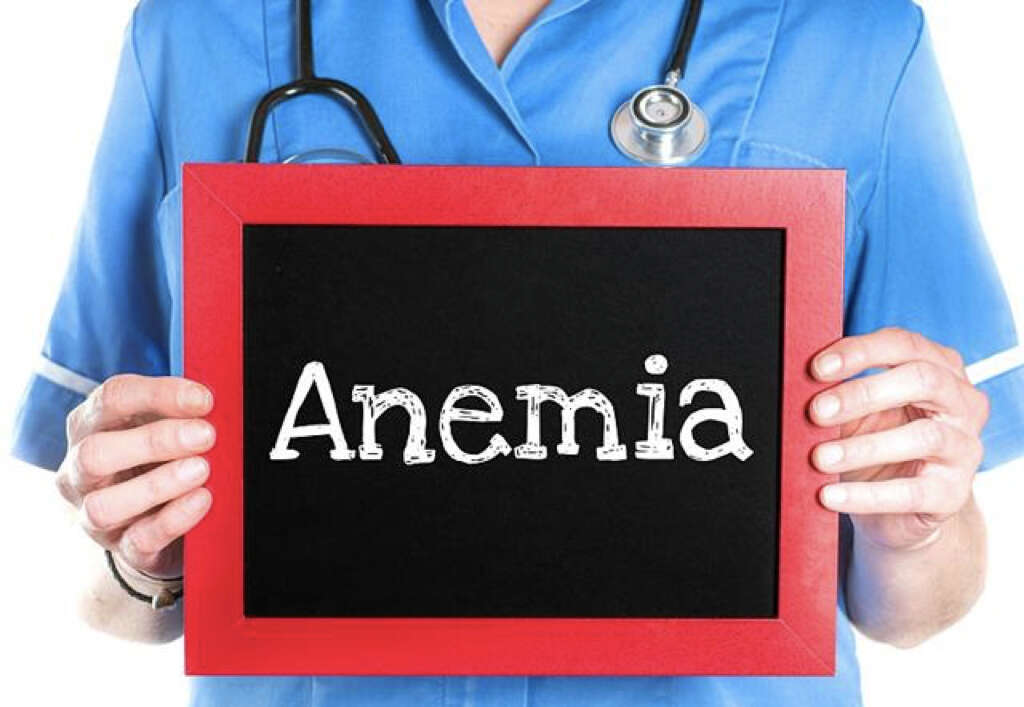10 Gastric Cancer Symptoms
Gastric cancer, or stomach cancer, refers to cancer that originates from the stomach lining. The cancer can invade or metastasize to involve other parts of the body such as the lymph nodes, lungs, liver, and bones. The commonest cause of gastric cancer is infection due to Helicobacter pylori bacteria. This accounts for more than 60 percent of gastric cancer cases. Besides H. pylori infections, other risk factors of gastric cancer include genetic, smoking, obesity, and dietary factors like the consumption of pickled vegetables, salted fish and meats, and smoked meats. Approximately 10 percent of cases have positive family history while 1 to 3 percent are due to genetically inherited syndromes such as hereditary diffuse gastric cancer.
Most stomach cancers are gastric carcinomas that can be divided into various subtypes. A diagnosis of gastric cancer can be made via a biopsy performed during endoscopy. Medical imaging also helps to determine if the cancer has spread. Since gastric cancer is especially common in South Korea and Japan, screening for gastric cancer in these regions is often recommended. Recommendations to help decrease the risk of gastric cancer include smoking cessation; however, the impact on risk reduction of dietary changes is uncertain. There is also evidence suggesting the treatment of H. pylori infections decreases the risk of gastric cancer. In most cases, early treatment results in remission. Treatment often includes radiation therapy, chemotherapy, surgery, and targeted therapy.
Outcomes of gastric cancer are often poor. This is due to most individuals who present with the condition often having an advanced case of the disease. The overall relative survival rate in the United States was 31 percent (2008-2014) while South Korea has a rate of 65 percent. The higher survival rate in South Korea can be attributed to their rigorous screening program. Globally, in 2018 (according to WHO) gastric cancer is the 6th most common cancer and the 3rd leading cause of death due to cancer. Gastric cancer is also twice as common in males compared to females, and the medium age of diagnosis is 68 years.

Symptom #1: Indigestion
Indigestion, or dyspepsia, occurs when digestion is impaired. Individuals experiencing indigestion will feel nauseous, have abdominal pain and abdominal fullness, and belch. There may also be early satiety. It is most commonly due to gastroesophageal reflux disease or gastritis.
In some patients, indigestion may occur in peptic ulcer disease or gastric cancer. Individuals over the age of 55 that start experiencing dyspepsia, should consult a physician in order to rule out more serious causes.

Symptom #2: Abdominal Pain
Abdominal pain, or a stomach ache, is a common symptom that can have non-serious or serious causes. The abdomen can be divided into 9 regions: right hypochondriac, epigastric, left hypochondriac, left lumbar, umbilical, right lumbar, right iliac, suprapubic, and left iliac regions. In these patients, the pain will be usually located in the epigastric region of the abdomen. Other causes of epigastric pain will be of biliary (i.e. cholecystitis, cholelithiasis, and cholangitis), gastric (esophagitis, gastritis, and peptic ulcer disease), pancreatic (pancreatitis, pancreatic mass), cardiac (myocardial infarction or pericarditis) or vascular origins (aortic dissection or mesenteric ischemia). Also, early appendicitis may be a colonic cause.
Abdominal pain is an uncommon symptom in patients with gastric cancer. However, patients who experience persistent abdominal pain should seek medical attention to rule out serious causes.

Symptom #3: Dysphagia
Dysphagia is a medical term used to describe the disruption of the swallowing process that interferes with a person’s ability to ingest food. Patients may have trouble with the passage of liquids or solids from the mouth to the stomach. Tumors seen in gastric cancer can be a cause of dysphagia due to their location in proximal parts of the stomach (i.e. cardia).
Dysphagia increases the risk of pulmonary aspiration and aspiration pneumonia. When a patient has dysphagia, they may exhibit coughing, choking, unexplained weight loss, frequent episodes of pneumonia, and nasal regurgitation. Dysphagia has many possible causes. It can be seen in esophagitis (i.e. GERD, motility disorders (i.e. achalasia), structural disorders (i.e. diverticulum, strictures, rings, fistulas), muscular disorders, as a side effect of drugs, etc.

Symptom #4: Postprandial Fullness and Early Satiety
Postprandial fullness is an unpleasant sensation where there is a prolonged presence of food in the stomach. Along with early satiety, these are common symptoms that are often seen in many individuals with gastric cancer.
Both postprandial fullness and early satiety causes patients with gastric cancer to feel full, despite only eating a small amount of food. It is believed that this contributes to the weight loss often seen among cancer patients. A nutritionist is often needed to ensure adequate intake of calories and protein.

Symptom #5: Loss of Appetite
Loss of appetite is known as anorexia. This term should not be confused with anorexia nervosa. Appetite loss is extremely common and can be seen in various conditions such as bacterial infections (due to the acute phase response triggered by parts of the bacterial structure), anxiety, appendicitis, depression, and dementia.
Loss of appetite can be due to the cancer and other contributory factors such as side effects of medications, radiation therapy, chemotherapy, and immunotherapy. Besides that, fatigue, pain, and depression may contribute to appetite loss as well.

Symptom #6: Melena
Melena describes feces that are tarry and dark black. It usually occurs due to upper gastrointestinal bleeding. The feces are black in color with a characteristic odor due to the hemoglobin that has been altered by intestinal bacteria and digestive enzymes. Melena should be distinguished from other grayish-black stools that may be seen when there is consumption of medicine such as iron supplements, bismuth salicylate, black licorice, beetroot, or blueberries.
Some causes of melena include peptic ulcer disease, side effects of anticoagulant medication (like warfarin), hemorrhagic hematologic diseases, and malignant tumors that affect the stomach, esophagus, or small intestine. Patients who suspect themselves having melena should seek prompt medical attention

Symptom #7: Anemia
Anemia results from a decrease of red blood cell mass (decrease in production or increase in breakdown) or from the presence of dysfunctional red blood cells in the body. It can also occur due to loss of blood. This leads to reduced oxygen delivery to the organs in the body. As a result, individuals with anemia tend to feel fatigued, dizzy, and breathless.
Some causes of anemia are iron deficiency, thalassemia, trauma, vitamin B12 deficiency, gastrointestinal bleeding, malaria, and sickle cell anemia. Anemia in patients with gastric cancer is present in approximately 30% of patients and may be caused by frequent bleeding in the tumor site, poor nutrition or liver dysfunction. When anemia is detected in an individual over the age of 50, further workup to rule out gastrointestinal malignancies must be performed.

Symptom #8: Hematemesis
Hematemesis is a term describing vomiting of blood. It usually occurs due to bleeding in the upper gastrointestinal tract above the suspensory muscle of duodenum. Hematemesis should not be confused with hemoptysis, which can be defined as coughing up of blood.
Some causes of hematemesis include erosion of the esophageal or stomach lining, Mallory-Weiss syndrome, gastric cancer, esophageal cancer, viral hemorrhagic fevers, peptic ulcer disease, and gastritis. Hematemesis is considered a medical emergency and management depends on whether the loss of blood is severe enough to cause shock.

Symptom #9: Lymphadenopathy
Lymphadenopathy reflects the presence of diseases involving the reticuloendothelial system (RES), which includes lymph nodes, but mainly involves the liver. Affected lymph nodes are abnormal in consistency and size, due to an increase in normal cells (lymphocytes and macrophages) in response to an antigen (foreign substance that induces an immune response in the body). Lymphadenopathy is a non-specific finding on physical examination and can be caused by common infections, cancers, and autoimmune diseases.
In cancer, when malignant cells break away from a tumor, they can travel through the lymph system and end up in lymph nodes (regional metastasis). There, they can grow and cause lymphadenopathies. In gastric cancer, some of the lymph nodes that may be affected are the lymph nodes in the anterior axillary (Irish node) and left supraclavicular lymph nodes (Virchow nodes). Lymphadenopathy that affects the Virchow nodes usually indicates spread or metastasis of the cancer.

Symptom #10: Weight Loss
Weight loss occurs when there is a decrease in the total body mass due to loss of adipose tissue, lean muscle, fluid, bone mineral deposits, and other connective tissue. Weight loss can be divided into intentional and unintentional. Unintentional weight loss may be caused by malnourishment or underlying disease. When the weight loss is not caused by exercise or reduction in calorie intake, it can also be called cachexia. More specifically, cachexia is seen in individuals with cancer, chronic obstructive pulmonary disease, celiac disease, heart failure, and tuberculosis.
It is estimated that about 50 percent of patients with cancer suffer from cachexia. It is most commonly seen in individuals with pancreatic and upper gastrointestinal cancers.












